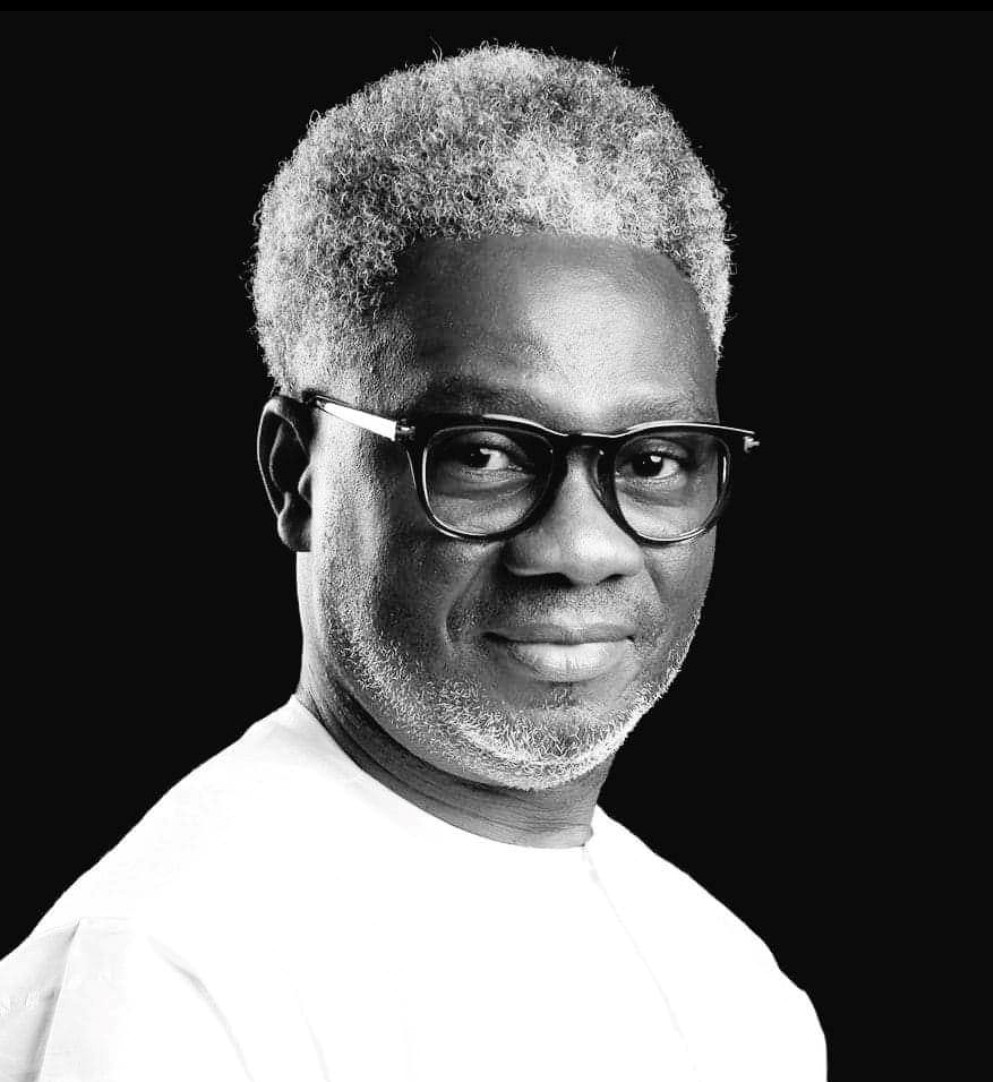In this interview with Anthony Nwosu of IT EDGE NEWS, The Top Management of Zeta-Web Nigeria Limited, an indigenous ICT firms that offer bespoke services in the areas of Data Center services, Internet Service and BPO, Zeta Web Speaks on the concept of outsourcing in Nigeria, how government must create an enabling environment for BPO and Contact Centers Service providers to thrive in Nigeria.
Zeta-Web Nigeria Limited has been known as a strong stakeholder in the Nigerian ICT space, can we know strides this 2017?
As a business concern, we introduced a suite of services that addresses some of the identified business needs and clients’ demands. These ICT solutions are tailored to meet the specific needs of our customers. We realized that for Nigerians to have the best customer experience, we must ensure that our ICT solutions are bespoke and tailor made to fit their individual needs. This was one of the major reasons that made us to introduce suite services, this would cater to various segments.
Zeta-Web has been split into Business solution and Contact Centre, what prompted this?
Contact Center is one of the services available within our product portfolio and part of our strategy to make Zeta-Web a one-stop ICT Center for businesses in Nigeria. The value Contact Center brings to any business cannot be quantified. The Contact Center solution as a service is usually entailed a high capital expenditure, but we crafted our own BPO/Contact Center to be cost-effective and robust most especially for SMEs. Unlike most contact centres that focus on the big corporates, we have the small and medium scale firms in view and also we service the big fir
Your firm is known for data and internet service, with the demand for high speed internet today, what is your business model and whom are you targeting at?
Our target audience ranges from SMEs to Large organizations. We are strategically positioned to operate a 3-tier business model that comprises of Technology, Business and Services. These are our main focus, we noticed that broadband is an economic driver and we are poised to deliver high speed broadband service that is compatible with what is obtained in the advanced countries.
But, there are cries that the quality of internet in the country is low, most of the operators are yet to come to terms with 4G services. Why is this situation still prevalent in the country?
I do not agree completely, if you need good service and are ready to pay for it, you will definitely get value for your money. However, Environmental factors, Regulatory policies and Infrastructure are generally undeveloped; hence prompting the complaints of poor quality of service even though this is due to the unstable nature of these elements. A lot of factors contribute to low quality of service from the internet service firms in Nigeria. We are looking at pricing, policies, topography an others, but in a nutshell, for you to enjoy a high speed internet in Nigeria, be ready to pay for it and some of us still offer such services.
 ISPs have cried to the regulator on the issue of harsh business environment and their inability to compete against telecommunication firms, hinting that this is anti-competitive practice. How true is this?
ISPs have cried to the regulator on the issue of harsh business environment and their inability to compete against telecommunication firms, hinting that this is anti-competitive practice. How true is this?
This is partially true. But if you go beyond connectivity to solution selling, and through your solution your customers can save cost and generate more revenue. You will definitely survive the harsh economy situation. And this is why we are customer -centric organization with services tailored to meet both your budget and business needs.
BPO and Contact Center solution seems to be gaining ground in the country. A lot of organizations are coming to terms with business process outsourcing and you are a player in this space. Today, most of the Contact Centers look at the big firms like banks, telcos and government establishments?
BPO and Contact Centers started as a global trend in the 60’s through the 80’s with manufacturing companies as the early adopters. But with the explosion that happened in the ICT world in the early 90’s BPO was further enabled and made available to a vast array of sectors and organizations. The basic idea of BPO is to give out non-core operations of a company to others who specialize in that area so that operations run smoothly, costs are cut and true value is realized. Typical BPO areas are customer service, Contact Centers, IT, finance, HR & Admin etc. Nigeria being part of the global village created by ICT is beginning to also play in this field. Nigeria did not initially tap into the BPO offshoring trend of the 90s because of infrastructure deficit and political climate, but with the advent of multinationals extending their operations into Nigeria BPO became an imperative. The Banks, Telcos and Government establishments are beginning to see the benefits of BPO first hand and are adopting and adapting it in ways that work for them. The boom in cloud technology and other ICT enablers is also making BPO easier to offer to other organizations as well.
Most organizations that offer Contact Center services, most times diversify or combine the services of Contact Center with Data Center services. How is your Data Center and do you think that the trend of Nigerian firms hosting abroad is changing?
A lot of the enabling technology needed for Contact Center services requires a Data Center to host them and if the Contact Center operations are to continue smoothly the Data Center must perform to certain standards of uptime, redundancy and availability. Some organizations who offer Contact Center services initially tried to run their own Data Centers or use one from outside the country, but the challenges of latency and divided attention eventually took its toll and they also eventually began to outsource this to dedicated Data Center providers. The availability of standard Data Centers in the country will make this a continuous trend with a lot of organizations moving into the country. It is actually the way to go these days.Zeta-Web Nigeria has a Contact Center and can provide Data Center services up to the Tier 3 Global standard which is the highest currently available in Nigeria.
IP infrastructure is one area that most Nigerian firms haven’t gotten it right, our infrastructure is mostly handled by oversea firms mostly Asians, as an ICT firm, do you believe that Nigerian firms have the capacity to handle this and what can the regulator, NCC do to ensure that Nigerian firms are given preferential treatment in bidding processes?
The idea that only foreign firms can handle IP infrastructure projects and indeed any type of ICT project be it ERP, Virtualization or any type of systems integration is a fallacy and no longer holds water. As I earlier mentioned, the world has become a global village because of technology and as such everyone in Nigeria has access to the same level of training and knowledge that is required for each project. Yes, there have been issues regarding standards in the past, but I can tell you from personal experience that any organization that holds excellence and the delivery of true value as supreme as we do at Zeta-Web will be fine and I believe that there are quite a few companies in Nigeria that have adopted this as part of their strategy.
I think the regulator can still do much more for one; they need to urgently take steps in implementing a local content policy so that the majority of the gains of the Telecoms industry growth since 2001 can remain in the country in terms of economic empowerment and technical know-how. For instance, if there are not enough contracts/projects awarded to indigenous companies, even their competent staff begin to look outside the country for greener pastures thus adding to the brain drain we have been experiencing lately.
Do you think that SMEs and organization are embracing the concept of outsourcing and Contact Center solutions? How can the government also ensure that Nigerian Contact Center solution providers are catered for in terms of policy statements and enabling environment?
Oh yes, the adoption of outsourcing is definitely on the upward trend. The ever increasing need to cut cost has been there and also the multiplicity of options for achieving the same things can lead to confusion and a lot of time invested in analysis and consideration of issues for non-core activities. Let us not equate the fact that they are non-core to mean not important. These outsourced areas are very important, but the complexities involved in handling them smoothly, efficiently and cost effectively is the headache that outsourcing solves.
I think the very first area to address with regards an enabling environment is Infrastructure. Specifically power and transportation. These foundational elements make it easier for outsourcing services to be offered in a cost effective way to SMEs. Also a cohesive strategy for Nigerian content development must be developed across the sector and implemented in a transparent way.
“I think the regulator can still do much more for one; they need to urgently take steps in implementing a local content policy so that the majority of the gains of the Telecoms industry growth since 2001 can remain in the country in terms of economic empowerment and technical know-how. For instance, if there are not enough contracts/projects awarded to indigenous companies, even their competent staff begin to look outside the country for greener pastures thus adding to the brain drain we have been experiencing lately.”


















